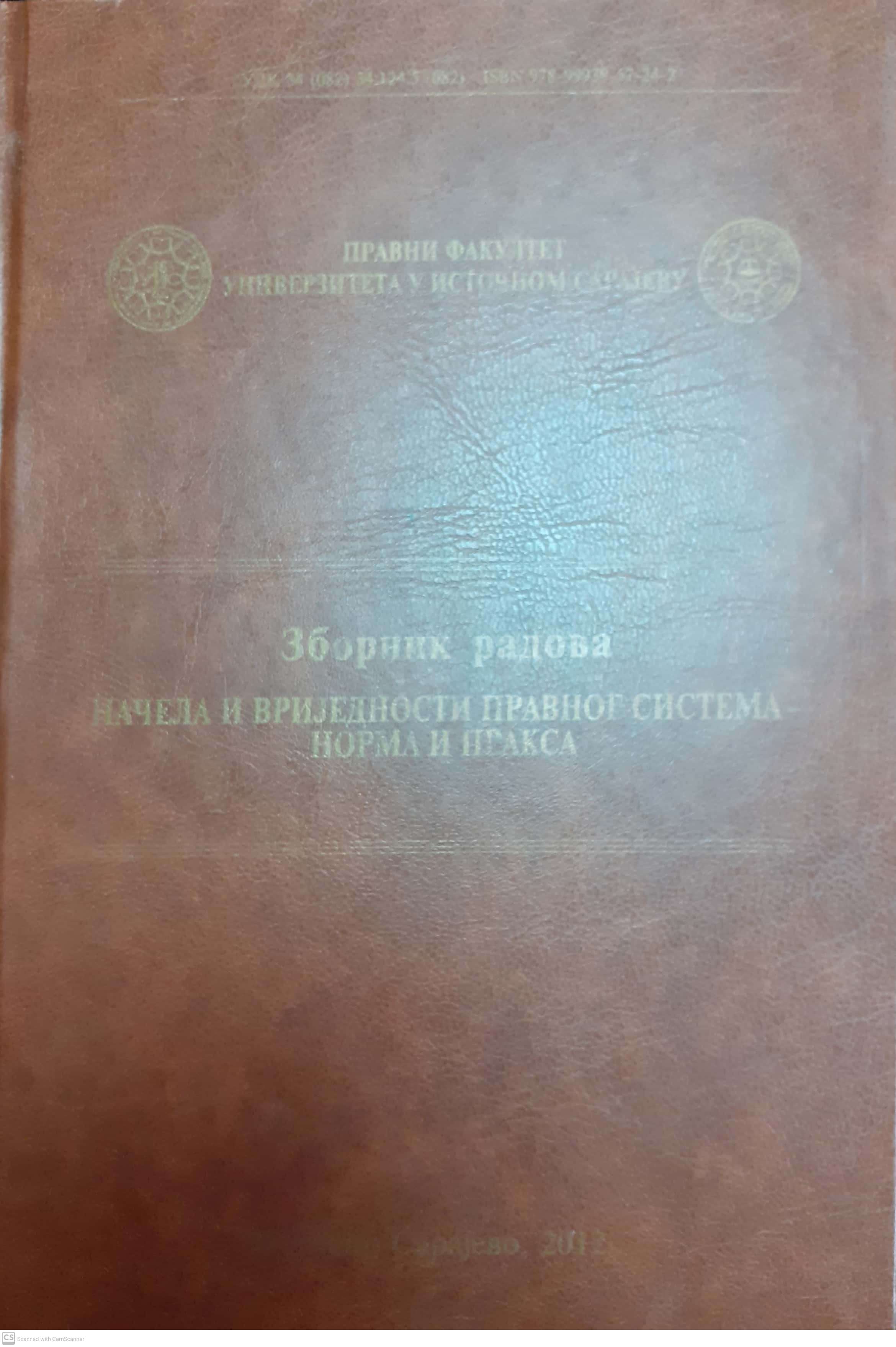Pluralizam kao obeležje sistema prava
Pluralism as a Characteristic of a System of Law
Author(s): Sava Aksić
Subject(s): Law, Constitution, Jurisprudence, Sociology of Law
Published by: Правни факултет Универзитета у Источном Сарајеву
Keywords: Pluralism;Law;State;Society;System;Rule;Internal;International;Imperative;Hierarchy;
Summary/Abstract: Pluralism (lat. pluralis sc. numerus – gram, plural; supr. singular), refers to, as etymological meaning of the word indicates, multidimensionality phenomenon or constituent elements it is made of, versatility or even product of its diversities, forms. Concept of pluralism is being used in many scientific disciplines and in philosophy. In philosophy, pluralism signifies state in which world is still in creation phase, as opposed to monism by which world is already arranged. In political sense pluralism is autonomy of social groups in regard to state, that is, pluralism relates to democracy as a form of political regime. Therefore, pluralism is such arrangement which allows political articulation of diversities. Pluralism in sociological state defines complexity of social power which corresponds to articulation of social structure, apropos of diversity of social trends in the broadest sense, although it signifies and conflicts that mutually exist in modern industrial culture, between special interests of social groups in regard to public interests. Ethical pluralism implies impossibility of one ethical monism in terms of the same moral principles or same basis of these principles, but comparative and independent existence of more moral paradigms.In law it means independent in conceptual and empiric signification, and like that in scientific – doctrinaire sense, conceptual systematic unities which like that can, on the level of normative beings imperative validity be identifiable in completeness, but also signify many constituent parts of one system or many systems of law regardless of the phase of law existence in which those parts appeared. Thus concept of pluralism signifies many different laws, which exists side by side, normative and therefore structures with systematic characteristic in the sense of logical unities of actual commitment with imperative conditioning, with regard that we consider lower concepts of pluralism only laws with undisputed systematical characteristic, as one of unexceptional feature of law. Only state and social law meet that condition, as parts of internal and international law, respectively formal and informal law as parts of state, social, internal and international law.In contrast external law pluralism - with comparative existence or relatively independent normative systems, pluralism which exists in the second case, pluralism of norms inside one system, by all characteristics that make concept of norm content, make internal pluralism. In regard to pluralism as maker of the law, pluralism as the source of the law, pluralism of execution and executor of the law, area of validity etc.Both legal systems, like lower concepts of legal system concept, like their general characteristic needs to have – characteristic of legality of their hierarchies, apropos of that relation between disposition and sanction both have characteristic of legal validity, that each system as a whole is composed of such norms whose sanctions have enforced characteristic (and of course logical sanction like characteristic of norm system in general), and applies to the others. That “legal” is their internal bond which is necessary (like basic characteristic, in order to talk about one phenomenon like plural, in contrast to situation where two or more phenomenons don’t have common basic characteristic by which in general they can be considered the same phenomena of certain content and volume, apropos of phenomenon of the same primary but different secondary characteristics, which would make a certain phenomenon plural).Theorists who gave considerable contribution to study of legal pluralism are Girke, Erlih, Veber, Petražicki and Gurvič.
- Page Range: 560-579
- Page Count: 20
- Publication Year: 2011
- Language: Serbian
- Content File-PDF

